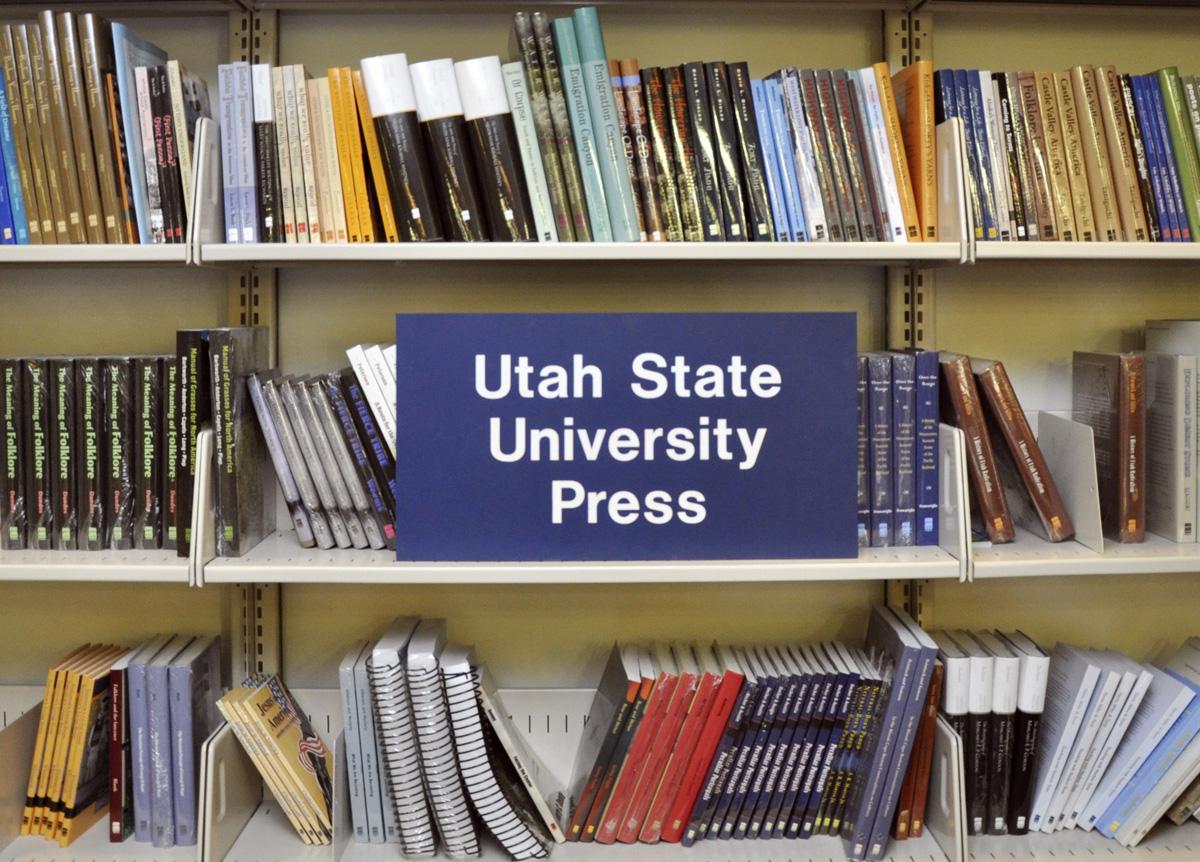USU Press joins U of Colorado Press
Months after budget cuts threatened the existence of USU Press, an acquisition agreement with the University Press of Colorado was finalized, keeping operations running as usual.
Michael Spooner, USU Press director, said the press will be a subsidiary of the University Press of Colorado, which is a “consortium” of university presses. By combining with USU Press, the University of Colorado Press will see their collections almost double.
“If we hadn’t found this arrangement, the press would have closed,” said Richard Clement, USU dean of Libraries. “It’s an extraordinarily unusual kind of arrangement and it’s a forward-looking arrangement.”
USU needed to address a budget cut in the state funding for higher education, Spooner said. and USU Press was one of the units on campus that received a small amount of state funding that may need to be cut. From that decision, he said a lot of possibilities presented themselves.
Kellyn Neumann, editorial assistant at USU Press, said the acquisition wasn’t happening because the press was in financial trouble.
“A lot of people think they were closing us down because we weren’t financially stable,” Neumann said. “We were actually doing a lot better than most university presses. We make quite a profit every year.”
Darrin Pratt, director of University of Colorado Press and acquiring editor, said he sees only benefits in acquiring the USU Press.
“USU Press is a well-run business with strong scholarly lists that dovetail nicely with our own regional history and also take us in new directions (such as) communications and folklore,” Pratt said. “By joining forces, we hope to create economies of scale that will benefit both the UPC and the USU (Press) list over the long term.”
University Press of Colorado will take on all the financial obligations, Clement said, and USU Press will continue publishing the quantity of books it has in the past.
“We think that it is the best of all possible solutions,” he said. “We certainly don’t want to see a shutdown. We have 40,000 books in a warehouse in Chicago, and we don’t want to send those to the pulper.”
There are 90 university presses throughout the country, Clement said, and a lot of faculty members don’t have a press where they teach. There are thousands of universities in the U.S., he said, and the fact that USU is one of those universities puts it in an elite group.
“It will give the combined organization almost $1 million in sales,” Clement said, “In business, when you are able to have a larger organization, there are more things you can do. It’s called scale. What we can do with this larger operation are things like better advertising, marketing and it’s one of those win-win situations.”
“It is a membership,” Spooner said. “There are eight universities in Colorado that joined together to support that university press. Utah State will become the ninth member of the consortium.Those nine institutions are pooling research.”
USU Press staff members are now considered employees of University Press of Colorado, Spooner said, and will telecommute from Logan’s campus.
The university has a “stake” in its press because it gives USU a national and international reputation, Spooner said, and members of University of Colorado Press like the set-up, because USU diversifies UCP’s list of research titles.
“We are not a printing service for USU faculty,” Spooner said. “We are a research publisher of books, and we carry the university’s research mission in that way.”
Professors must publish their research in order to advance in their careers, Spooner said, and sometimes they use scholarly presses to do this. USU Press publishes faculty members’ research from Utah as well as other states and countries.
“I’m certain there are nearly 1,000 faculty members across the country who owe some part of their tenure or promotion to USU Press, because they have published with us in the last 20 years,” Spooner said. “A lot of our books have multiple chapters and each chapter is written by a different faculty member.”
A research university must prove they are having an impact in the realm of research, Spooner said. USU Press gives national recognition to scholarly research conducted throughout the state.
“We add some depth and diversity to their publications,” Spooner said.
Neumann said researchers won’t experience more difficulty getting their work published. However, those seeking publication will have to get approval from both USU and University Press of Colorado, she said.
– catherine.meidell@aggiemail.usu.edu

